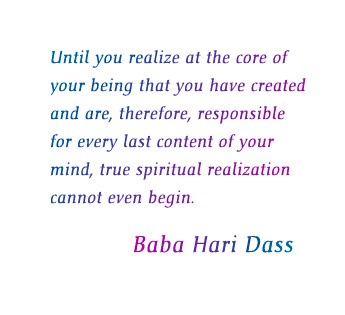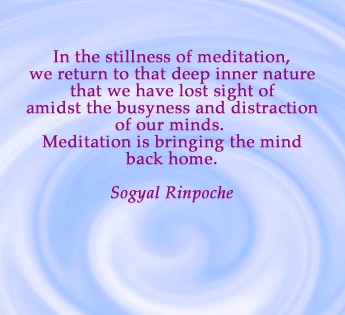The Integrated Therapy Program provides holistic/preventive health care for those with either acute or chronic, treatment-resistant conditions. Psychotherapy in conjunction with ongoing holistic care can bring relief to individuals presenting a broad range of chronic pain and stress-related disorders. These conditions include, but are not exclusive to:
• Migraine and Neuromuscular Headaches • Insomnia
• Hypertension and Tachycardia • Colitis and Spastic Colon
• Raynaud’s Phenomenon/Disease • Chronic Fatigue
• Substance Abuse andAddictive Behaviors • TMJ Pain and Bruxism
• Muscular Spasms • Eating disorders
With regard to managing stress and pain using this holistic approach, let us look at this process in more detail:
What is stress?
Stress is an imbalance among one's physical, mental, and spiritual sides. When one is discontent, unhappy, or experiencing physical or emotional pain, there is a tendency to look outside for both the causes and solutions to these problems.
No one would deny that modern living presents many potentially stress-producing situations. Medical professionals must make daily life and death decisions, students are pressured by exams and social conformity, life at home has become very complex, and workers find themselves in demanding and pressure-filled jobs.
In the end, however, the stress comes not from the external pressures, but from the way one chooses to respond to these pressures. Searching outside, rather than within, for a resolution to these problems results in a sense of powerlessness and a dependence on external solutions. Anxiety, tension, and/or addictive behavior are often the result.
Pain: What is the problem?
Chronic pain is one of the most frustrating medical and emotional problems. Whether caused by accident, illness, or stress-induced, pain transforms one's entire life by causing irritability, erratic sleep, and difficulty in both concentrating and performing routine tasks.
One of the things that makes chronic pain so difficult to treat is one's own reaction to that pain. When a part of the body causes pain, there is a natural, automatic tendency to tense the muscles in and around that particular area.
In addition, the pain becomes a stressor in and of itself. This increases tension throughout the body making it more difficult for the affected areas to heal. A vicious cycle of pain, stress, and tension is thus created.
What is the approach of this program?
As a complement to medical treatment and evaluation, an integrated therapy program offers additional ways to treat the cycle of pain, stress, and tension. Although changing the world is often difficult or impossible, one can change one's self by learning to become quiet in body and mind.
This is the essence of pain- and stress-management as, from this more peaceful place, one learns to respond to pain and stress-inducing situations in more healthful ways. Each of us has the ability to be the architect of our own destiny, to find within ourselves the solutions to our problems.
This approach emphasizes the well-being of the whole person, not just the treatment of specific symptoms. Given that body, mind, and spirit form an indivisible unity, it is assumed that one cannot alter any one of these without affecting the other two.
Moreover, the balanced development of one's physical, psychological, and intuitive potentials is true health. Emphasis is placed, therefore, on prevention rather than intervention, as one learns to take care of oneself in new and better ways.
It is within this framework that the health professional acts as a guide and advisor who suggests specific techniques that one can then use to help alleviate tension-related distress. This approach thereby encourages one to take the primary responsibility for his or her own state of physical, emotional, and spiritual health.
What does this program involve?
By learning ways of coping with pain and stress, one develops a state of harmony and balance within. Through a variety of interrelated methods that includes breath awareness training, autogenic relaxation, biofeedback, hatha yoga, aerobic exercise, transpersonal psychotherapy, meditation, and recommendations for a natural, stimulant-free diet, our program helps individuals realize the power they have to take charge of their lives.
Successful completion of the program depends on each person's willingness to make a commitment to practice the skills being taught. The practice of these methods over a period of time allows one to experience the usefulness of these techniques.
The counselor acts as a teacher, guide, and friend, but it is the client alone who decides to change his or her life. Giving the client responsibility for his or her own treatment throughout the sessions facilitates both the transition to a non-treatment situation and the continuation of the new healthful habits that have been established.
Facets of the Program
Breath Awareness - Breathing style serves as both a regulator and indicator of one's level of stress. Clients are instructed in diaphragmatic breathing and other breath awareness techniques.
Autogenic Relaxation - Clients are personally directed in systematic tense-relax and progressive self-guided relaxation exercises.
Biofeedback Training - Regular sessions of biofeedback practice complement the daily relaxation. Clients are thereby given the opportunity to learn to control internal bodily states.
Diet and Nutrition Counseling - Clients are encouraged to eat a balanced, stimulant-free diet. An individualized program is provided.
Hatha Yoga - Individualized programs are offered from the classic hatha yoga system of stretching and strengthening postures.
Aerobic Exercise - Consultation is provided for the development of a personalized program of regular exercise.
Transpersonal Psychotherapy - Mindful of our spiritual essence, the therapist explores the psychological factors which contribute to emotional and physical pain.
Meditation - Clients are taught techniques for quieting the mind, improving the ability to concentrate, and enhancing one's sense of well-being.
An Evolving Vision
A balanced approach that draws on both Western allopathic medicine and holistic/preventive care can be quite effective in the relief of physical and emotional pain. Consider the following:
A Physician’s Thoughts on the Nature of Health and Medical Practice
Audrey Butko, M.D.
In our Western world, we tend to view health as the absence of disease, as something that can be taken for granted or that we have "a right to.” We are seen as unfortunate victims of our illness who are often provided with medications or recommendations for surgical intervention. When illness befalls us, we submit to the health care system and open ourselves to its "cure."
But health implies more than the mere absence of disease. Being healthy is a dynamic state involving all levels of our existence---the physical, emotional, and spiritual dimensions. When we begin to delve into these complex layers, an inner awareness unfolds, and inevitable questions begin to arise: "What is life?" "Where am I going and why?" "What does it mean to die?” These are all questions that most of us have pondered, questions which lead us on a search. It is in this search that we find personal growth.
When we view life as a series of experiences, each representing an opportunity for growth, then illness is one event that opens doors for exploration. Instead of being an inconvenience, it becomes a valuable time to understand how we are functioning. It is a time to examine our various levels and see what questions arise.
With this model of health, the physician does not see a patient for just ten minutes with an intent to "fix" or “cure," but rather, acts as both guide and teacher as well as a resource for helping the individual with the immediate discomfort of illness. By encouraging the patient to take responsibility for his or her own condition, the physician can then work with individuals in their personal growth process. Using medications in supportive combination with the various modalities of the Integrated Therapy Program, the physician helps others lead a more accepting and effective life.


